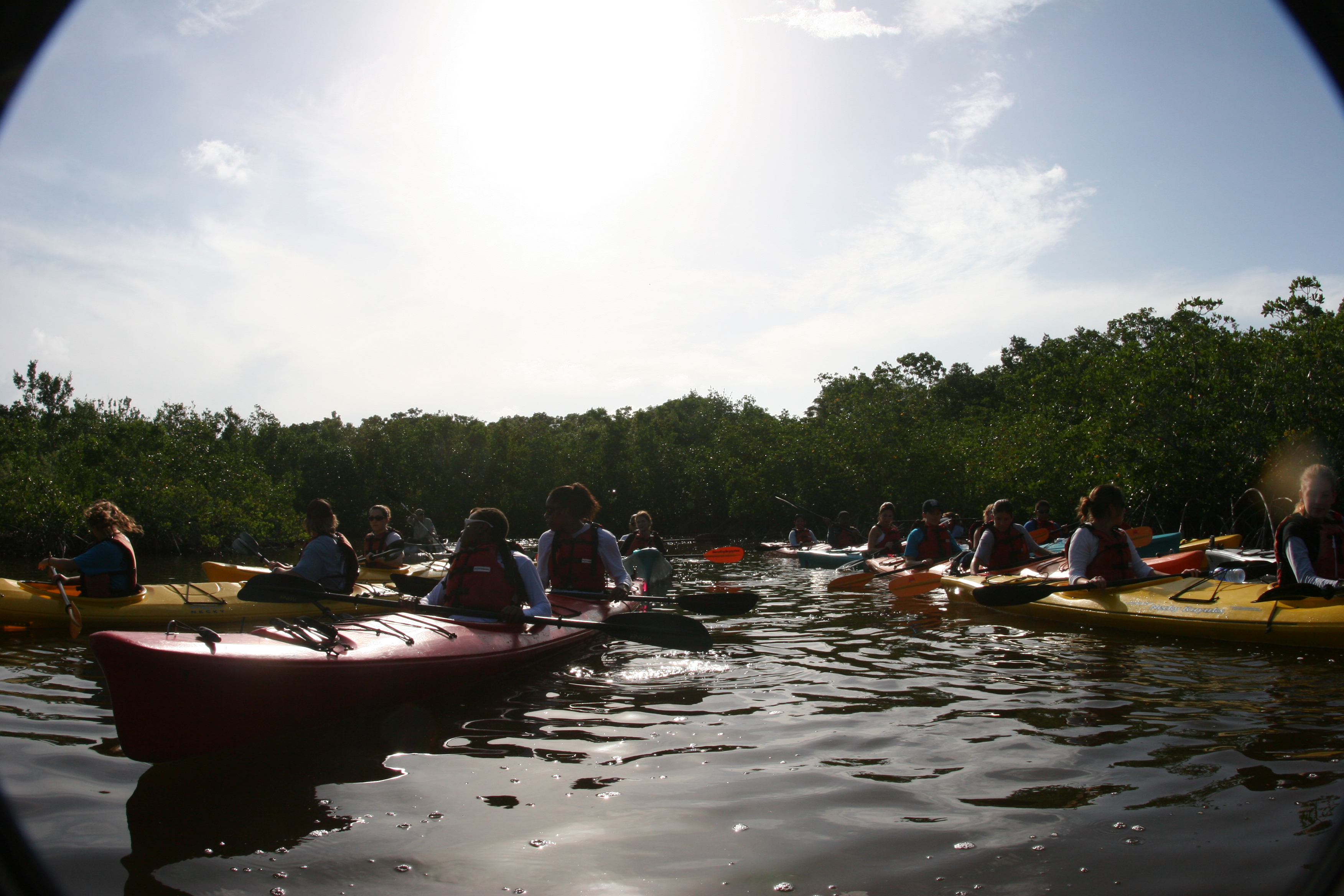|
Marine Science Major:
1.English I (R,H,G)
2.Math: Algebra I, Geometry, Algebra 2 (R,H)
3.Biology
Honors (Mg)
4.Research (Mg)
5.Marine Seminar (Research I Honors) (Mg)
6.Health/Computer Applications
7.Elective
(Program Suggestion is Marine Service I or Foreign Language)
Marine Industries & Technology:
1.English I (R,H,G)
2.Algebra I (R,H)
3.Biology (Mg)
4.Research (Mg)
5.Marine Seminar (Mg)
6.P.E. & Health
7.Elective
Field Trips
IGFA: International Game Fish Association
At IGFA the students did a lab which included learning about the different fish and the different
habitats. They also learn about the evolutionary changes that fishes go through. Then they take a tour of their
wetlands which has alligators, birds, fish and many other animals.
Beuhler Planetarium:
Students learn about astronomy through various programs
offered at the BCC Beuhler Planetarium. They learn how early people used the stars to navigate the seas.
Gumbo Limbo
Gumbo Limbo is located in Boca Raton, Florida at Red Reef Park on the barrier island between
the Atlantic Ocean and the Intracoastal Waterway. Twenty acres of Boca Raton's Red Reef park have been reserved specifically
for a nature center and the preservation of a natural plant association known as a tropical hammock. The marine and estuarine
location, and the diversity of native vegetation communities found within Red Reef park, also include the coastal dune, a
sabal palm hammock and a mangrove wetlands. Interesting faunal species include a variety of mammals, birds, reptiles and fish.
Rare and endangered species such as the manatee, the brown pelican, the osprey and sea turtles can often be observed on or
from the facility. Coastal relics like a shell midden from the Pre-Columbian Indians and Pond Apple trees from the original
freshwater body (known as the Spanish River) can be seen. A cannon and anchors have also been found on the shore of Red Reef
park. All these assets give Gumbo Limbo a unique blend of living history.
Overnight camp trip on island
The 3 day field trip for the freshmen takes place on a deserted island
that they must travel to by kayak. Students learn about marine ecosystems through team building activities. The
students kayak in teams of two to various habitats where they observe the interdependence of the different inhabitants of
the ecosystems.

|



